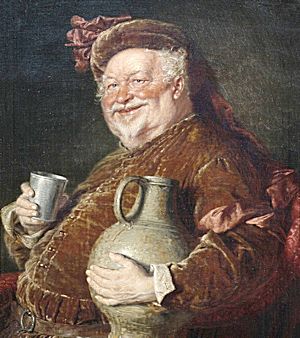|
Playlist Henry IV Part Two | Dramatis Personea | Sitemap Scenes SAYS WIKI: Henry IV, Part 2 is a history play by William Shakespeare, believed written between 1596 and 1599. It is the third part of a tetralogy, preceded by Richard II and Henry IV, Part 1 and succeeded by Henry V. None of Shakespeare’s plays are more read than the first and second parts of Henry IV, Perhaps no author has ever, in two plays, afforded so much delight. The great events are interesting, for the fate of kingdoms depends upon them; the slighter occurrences are diverting, and, exceptone or two, sufficiently probable! The incidents are multiplied with wonderful fertility of invention, and the characters diversified with the utmost nicety of discernment and the profoundest skillin the nature of man. The Prince, who is the hero both of the comic and tragic parts, is a young man of great abilities and violent passions, whose sentiments are right, though his actions are wrong; whose virtues are obscured by negligence, and whose understanding is dissipated by levity. In his idle hours, he is rather loose than wicked; and when the occasion forces out his latent qualities, he is great without effort, and brave without tumult. The trifler is roused into a hero,and the hero again reposes in the trifler.The character is great,original, and just. Percy is a rugged soldier, choleric and quarrelsome, and has only the soldier’s virtues, generosity and courage. But Falstaff “unimitated, unimitable Falstaff”-how shall I describe thee? thou compound of sense and vice; of sense which maybe admired, but not esteemed; of vice which may be despised, but hardly detested. Falstaff is a character loaded with faults, and with those faults which naturally produce contempt. He is a thief and a glutton, a coward and a boaster; always ready to cheat the weak, and prey upon the poor” to terrify the timorous, and insult the defenceless. At once obsequious and malignant, he satirizesin their absence those whom he lives by flattering.He is familiar with the Prince only as an agent of vice ; but of this familiarity he is so proud as not only to be superciliousand haughty with common men, but to think his interest of importance to the Duke of Lancaster. Yet the man thus corrupt, thus des- picable, makes himself necessary to the Prince that despises him by the most pleasingof all qualities, perpetualgayety ” by an unfailingpower of excitinglaughter,which is the more freelyindulged,as his wit is not of the splendid or ambitious kind, but consists in easy scapes and sallies of levitywhich make sport,but raise no envy. It must be observed, that he is stained with no enormous or sanguinary crimes, so that his licentiousness is not so offensive but that it may be borne for his mirth. The moral to be drawn from this representationis,that no man is more dangerous than he that,with a will to cor- rupt, hath the power to please; and that neither wit nor honesty ought to think themselves safe with such a com- panion when they see Henry seduced by Falstaff.
|

